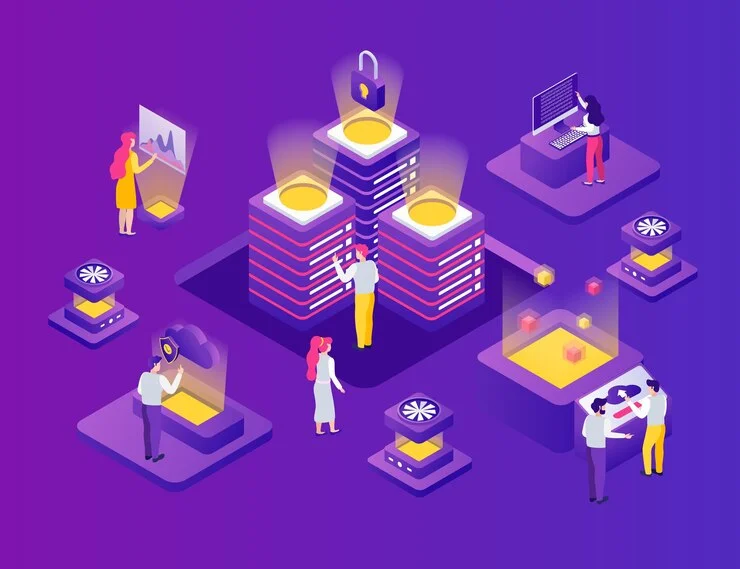Decentralized exchanges (DEXs) have emerged as a cornerstone of the blockchain ecosystem, allowing users to trade cryptocurrencies trustless and censorship-resistantly. One key feature that sets DEXs apart from their centralized counterparts is using governance tokens. This article will discuss the role of governance tokens in decentralized exchange ecosystems.

Understanding Governance Tokens
Governance tokens are cryptographic assets that grant holders the right to participate in the decision-making processes of a decentralized protocol.
Simply put, governance tokens are a type of cryptocurrency that allows token holders to vote on the direction of a blockchain project.
The primary purpose of governance tokens is to decentralize decision-making and give holders a say in project running. People who own governance tokens usually care more about the project’s success because they have more to gain or lose, depending on how it turns out.
Tokens allow community members to influence a blockchain protocol’s features and future directly. As such, it is possible to independently implement changes related to the user interface, vote on fees and reward distribution, or even modify the underlying code of a project.
In decentralized exchanges, these tokens empower users to propose, vote on, and implement changes to the platform’s parameters, functionalities, and future developments.
How do Governance Tokens Work?
Governance tokens are the foundation for establishing decentralized governance in decentralized autonomous organizations (DAOs), DeFi projects, and decentralized applications (DApps).
Decentralized Exchanges award governance tokens to users who have contributed significantly to the community or shown loyalty. Token holders then vote on crucial issues to ensure the project’s progress.
Voting is typically conducted through smart contracts, automatically tabulating and implementing the results.
Each project has its own set of governance token rules. They are given to stakeholders like the founding team, investors, and users using different calculation methods.
Some governance tokens only vote on a limited number of governance issues, while others vote on everything from development updates to smart contract revisions.
Similarly, some governance tokens can generate financial returns; others do not. The Ethereum-based DAO, MakerDAO, was among the first issuers of governance tokens. MakerDAO’s stablecoin is called Dai, while Maker token holders govern the protocol. One token equals one vote, and decisions with the most votes are adopted.
Although most decentralized finance (DeFi) tokens are governance tokens, voting is not their only defining feature. People possessing these governance tokens can use them to take out loans, stake them, and earn money through yield farming. Given all this, their primary function is still to distribute power.
Governance tokens are a relatively new invention, and there is still much debate about their efficacy. Some believe they are the key to true decentralization, while others worry that they will lead to the centralization of power among a small group of token holders.
Advantages of Governance Tokens
Governance tokens are crucial in decentralized ecosystems, particularly blockchain and cryptocurrency projects. Here are some advantages of governance tokens:
- Decentralization
- Incentives for Participation
- Transparency
- Efficient Development
- Alignment of Incentives
Decentralization
Governance tokens empower decentralized decision-making, allowing users to have a say in the development and direction of a project. Decentralization helps avoid centralization of power and control.
Incentives for Participation
Users receive incentives for actively engaging with a project or platform to earn or maintain governance tokens. This active participation can contribute to the growth and success of the
Ecosystem.
Transparency
Governance mechanisms are typically transparent, with voting records and proposals visible on the blockchain. This transparency fosters trust within the community and allows participants to make informed decisions.
Efficient Development
Governance tokens enable a more agile development process by allowing developers to focus on features that the community values. This can result in faster and more responsive development cycles.
Alignment of Incentives
By linking governance tokens to participation or contribution, the interests of users and developers become more aligned. This can create a positive feedback loop where users contribute to the platform’s success, benefiting both parties.

The Role of Governance Tokens in Decentralized Exchange Ecosystems
Governance tokens are pivotal in shaping the decentralized exchange landscape, empowering users to participate actively in decision-making processes. Let’s discuss the role of decentralized exchange ecosystems.
- Protocol Upgrades and Parameter Adjustments
- Listing and Delisting of Assets
- Fee Structure and Revenue Distribution
- Security Measures and Risk Management
- Community Engagement and Education
Protocol Upgrades and Parameter Adjustments
Governance tokens enable users to propose and vote on protocol upgrades actively. This includes changes to the underlying smart contract code, fee structures, trading pairs, and other parameters that govern the functioning of the decentralized exchange. This democratic process ensures that changes align with the collective interests and vision of the community.
Listing and Delisting of Assets
Decentralized exchanges often challenge deciding which assets to list or delist. Governance tokens empower users to have a say in this process. Token holders can propose new listings or advocate for removing certain assets based on community sentiment, market demand, or compliance considerations.
Fee Structure and Revenue Distribution
Governance tokens play a crucial role in determining the fee structure of the decentralized exchange. This includes trading fees, withdrawal fees, and any other revenue-generating mechanisms. Token holders can propose changes to these structures and decide on the distribution of revenues, ensuring a fair and transparent financial model.
Security Measures and Risk Management
Security is paramount in the dynamic landscape of decentralized finance (DeFi). Governance tokens empower users to propose and vote on security measures and risk management strategies. This could include enhancements to smart contract audits, bug bounty programs, or the implementation of insurance mechanisms to protect users against potential exploits.
Community Engagement and Education
Beyond decision-making, governance tokens foster community engagement and education. Token holders often engage in discussions, forums, and governance forums to share insights, propose ideas, and contribute to the overall development of the decentralized exchange ecosystem. This sense of community involvement strengthens the platform’s resilience and sustainability.
Disadvantages of Governance Tokens
While governance tokens offer numerous advantages, they also have disadvantages and challenges. Here are some disadvantages of governance tokens:
- Complexity
- Risk of Abuse and Sybil attacks
- Lack of Accountability
- Voting Apathy
- Regulatory Uncertainty
Complexity
Governance token systems can be complex, especially when multiple token types have different functions. This complexity may deter some users from participating in governance processes, leading to apathy and reduced engagement.
Risk of Abuse and Sybil attacks
Users with a significant number of governance tokens may have a disproportionate influence over decision-making.
This could lead to decisions that primarily benefit a small group of individuals rather than the broader community.
Governance tokens may be vulnerable to Sybil attacks, where an individual creates multiple identities to gain undue influence in decision-making.
Lack of Accountability
Clear accountability might be lacking if governance decisions lead to negative outcomes for the platform. Attributing responsibility to decisions resulting in problems or failures may be challenging.
Voting Apathy
Due to the complexity or perceived lack of impact, users may become apathetic towards voting and governance processes. This can undermine the intended benefits of decentralized decision-making.
Regulatory Uncertainty
The regulatory environment for governance tokens is still evolving, and projects using these tokens may face legal challenges or uncertainties, especially if their governance mechanisms need to be compliant with existing regulations.
Conclusion
Governance tokens are a fundamental building block in the evolution of decentralized exchanges. By placing decision-making power in the hands of the community, these tokens empower users to shape the platform’s trajectory actively.
While governance tokens offer powerful mechanisms for decentralization and community involvement, carefully considering their design, transparency, and potential risks is crucial for successful implementation.
Projects must find a balance that encourages participation while addressing challenges associated with complexity, abuse, and accountability.
As decentralized exchanges play a pivotal role in the broader blockchain ecosystem, governance tokens will undoubtedly become even more significant, ushering in a new era of decentralized and community-driven financial systems.
